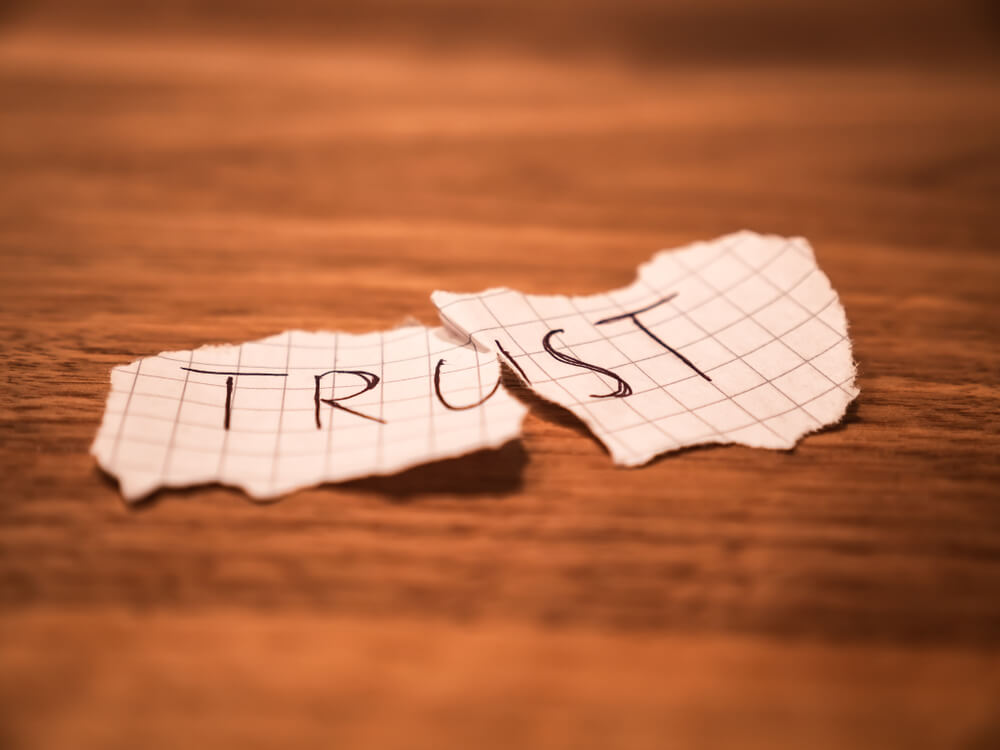Trust is the steel bond that consolidates all meaningful relationships, in which people present the the best friendships, loves or relationships, always starting from integrity and coherence, few psychological dimensions are as vital, as nutritious, but as complex as we allow ourselves. trust someone, as we must deposit a part of ourselves in someone else.
If we think about it for a moment, we will realize that trust implicitly resides in most of the activities we do on a day-to-day life. Getting in a taxi, for example, involves trusting the person driving the car. an operation, involves relying on the professional’s experience.
“It is mutual trust, more than mutual interest, that unsofies human groups. -H. L. Mencken-
At the same time, every time we take to the streets, we believe that no one will hurt us, that our friends will remain our friends, that the tranquility and balance of the past in our society will continue, with its rules, with its harmony in the chaos world, with its balance in the disorder of daily life.
Thus, if we do not think so and perceive our reality from permanent mistrust, uncertainty and fear, we would enter into a kind of terrifying neurosis, in a series of psychological disorders, in which it is impossible to perform an activity and at least establish some kind of healthy bond with other people.
Distrust disconnects us from life and leaves us trapped in a dark, menacing and unso comfortably space, this happens for a very simple reason: people are social beings by nature, we were made to connect with our fellowmen. does not happen or when we experience disappointment or betrayal in our own skin, does our brain interpret it as a real, deep and painful wound?
Santiago lived a few years ago the worst betrayal of his life, his best friend, fellow scholar and professional of the same company, claimed as his own a project that both had developed, and that has been developing for a long time. and while many people continue to recommend that he forgive and remain without a grudge, our protagonist feels unable to do so and, since then, his personality has become a little more closed, cautious and, above all, suspicious.
Santiago described this friendship as a dance of two trapeze players in the air, who together took risks and challenges, but he was never afraid: this friend’s hands were always there to reach him in the air after every pirouette. Suddenly, his friend lets him go, out of nowhere. Since then, the pain has persisted.
All these sensations are explained at the neurological level through a series of very specific and revealing processes.
As several experts on the subject show, is oxytocin the real thing?Glue, from our social relationships. Oxytocin: the one that generates confidence, the one that makes us generous and the one that interprets these gestures as positive and enriching.
Thus, when what we are living is exactly the opposite of this type of process, the brain interprets it as a threat, thus leading to the release of cortisol: stress hormone and anxiety.
Any social process to which we give a positive value immediately stimulates a very specific area: the median prefrontal cortex, this area of our brain is linked to positive rewards and emotions, at the same time that it is also in this region where we consolidate many of the writings associated with our relationships to make decisions based on them.
In this way, it could be found that the quality of all these processes based on positive sociability forms a stronger brain, with less fear, uncertainty and anxiety before life. However, sometimes it is enough to go through a betrayal like that of our protagonist so that some of this neurobiological activity is completely altered.
In fact, emotional disappointments stimulate the same areas of pain as when we have a skin burn, all of which certainly leads us to conclude that the most sincere prosocial behaviors and the most intimate relationships of trust are fundamental to our well-being. Does it mean, on the contrary, in many cases that we felt displaced, disconnected from life for a while?
“You have to trust and believe in people, otherwise life becomes impossible. – Anton Chekhov-
We’ve all been in situations where emotions bring disappointment. We know what it knows and why our brain interprets this lack of harmony as a burn, as the devastation of precious possession that we consider incorruptible and enduring. It is common to feel humiliated and worse, to think that such an offense is our responsibility to have believed.
Nothing further from reality, error is never trusted because it is our nature, because trust is an instinctive necessity of our brain, error, true crime, they are the ones who betray because nothing is as offensive as breaking social ties. for your own benefit, nothing is as illogical as going against one of humanity’s most fundamental principles, such as coexistence, respect for the group and whom we trust.
However, there is a basic principle in all this that we cannot forget, regardless of how some people treat us at certain times, it is necessary to be able to look further, it is necessary to understand that trust is an attitude to life in general. , not to certain specific names that once hurt us. Living, progressing and growing means assuming that sometimes there are certain risks, that what seems safe today may be fallible tomorrow.
Trust is a way of responding, an attitude towards the present that will allow us to achieve a happier, freer and more complete future.

